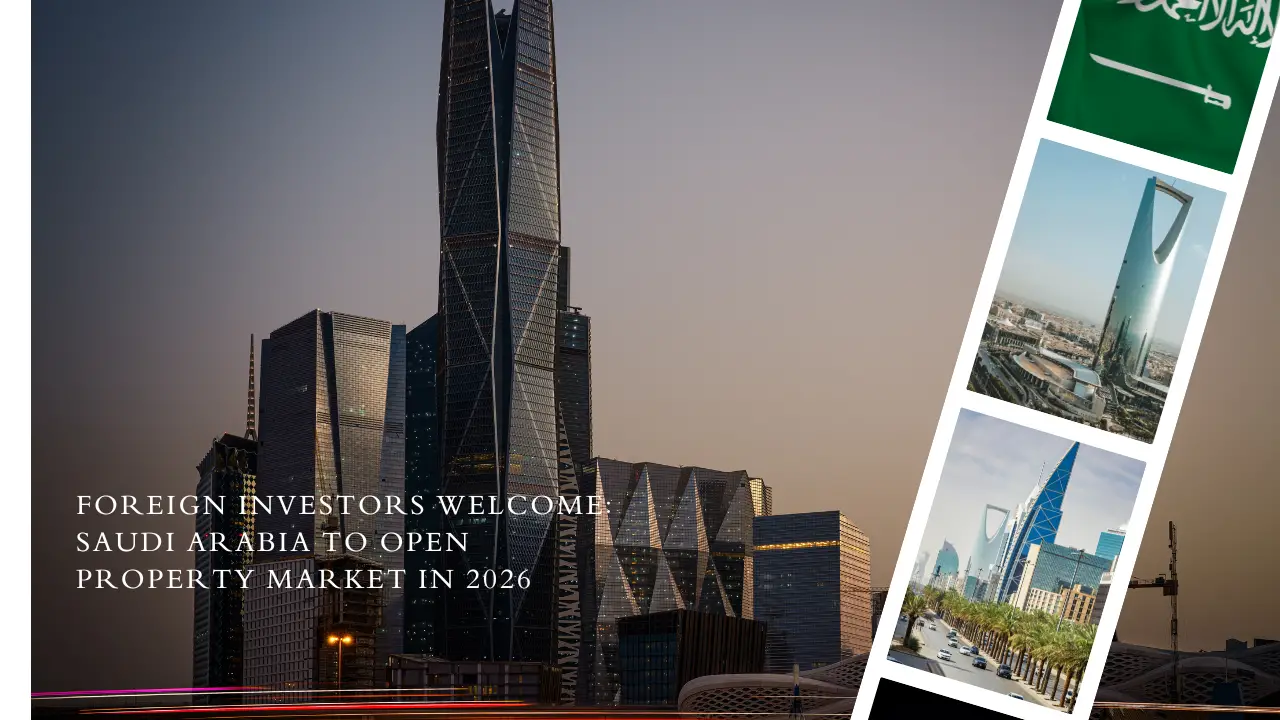Saudi Arabia will open its real estate market to foreign ownership by 2026 — a bold step boosting FDI, Vision 2030 goals, and global investor confidence.
A Landmark Shift in Middle East Real Estate
In a landmark decision set to reshape the regional real estate landscape, Saudi Arabia has announced that it will open its property market to foreign ownership by 2026. This long-anticipated reform marks a transformational leap in the Kingdom’s economic diversification strategy, unlocking freehold real estate opportunities for non-Saudis in prime locations across the country.
A New Chapter in Global Investment Confidence
From an investor’s perspective, this development goes far beyond real estate reform — it’s a strategic signal to the global investment community that Saudi Arabia is ready to compete on the world stage. The move complements ongoing efforts to attract foreign direct investment (FDI) and aligns with Vision 2030, the Kingdom’s blueprint to reduce oil dependence and create a knowledge-based, investor-friendly economy.
By opening its doors to international property investors, Saudi Arabia is positioning itself alongside regional success stories like Dubai and Abu Dhabi, which have seen exponential growth after liberalizing their real estate sectors.
Freehold Ownership in Key Investment Zones
The new law, expected to take effect by 2026, will enable foreign investors to own residential, commercial, and possibly industrial properties. Strategic zones such as NEOM, Riyadh, and the Red Sea Global projects are likely to be among the first to offer freehold ownership rights.
These megaprojects, already central to Vision 2030, represent billions of dollars in real estate and infrastructure investments, and opening them to foreign buyers could accelerate demand and global interest.
Why This Matters for Global Real Estate Investors
The introduction of foreign ownership rights in Saudi Arabia’s property market presents a historic opportunity for investors seeking long-term growth, portfolio diversification, and access to one of the world’s fastest-growing G20 economies.
Key investor advantages include:
- Freehold property ownership in major cities and economic zones
- Strong capital appreciation potential driven by rapid urbanization
- Residency and visa incentives linked to real estate investments
- High rental yields amid rising demand for housing and commercial spaces
- Government-backed legal protection for property rights
This policy shift will likely boost investor confidence, enhance asset value retention, and encourage long-term commitment to the Saudi market.
Regional Impact: Raising the Bar for Competition
As Saudi Arabia opens its doors to global investors, the move is set to reshape regional real estate dynamics. Neighboring markets such as the UAE, Bahrain, and Qatar may feel competitive pressure to enhance their own property ownership frameworks to stay attractive.
This healthy competition could spur innovation, better governance, and improved investor incentives across the Middle East, turning the region into a global real estate powerhouse.
Vision 2030: Building the Future of Saudi Real Estate
The 2026 property ownership reform is not just an economic milestone — it’s a symbol of transformation. It reflects Saudi Arabia’s determination to become a world-class investment destination, supporting sustainable development and global partnerships.
With mega-cities like NEOM, The Line, and Diriyah Gate redefining architecture and smart living, and with billions in infrastructure spending, the country is creating a real estate ecosystem built for the future.
Saudi Arabia’s 2026 Property Revolution: A New Era for Global Real Estate Investors
As we approach 2026, all eyes are on Saudi Arabia’s evolving real estate market. This policy shift marks a new era of opportunity, openness, and growth. For developers, agents, and investors, the time to start positioning for entry into the Saudi property market is now.
The Kingdom is not just opening its doors — it’s inviting the world to invest in its future.

